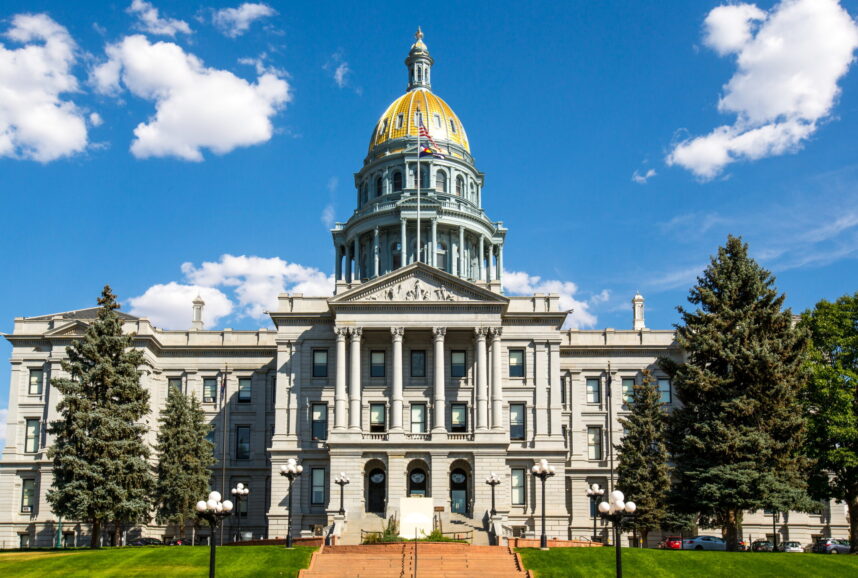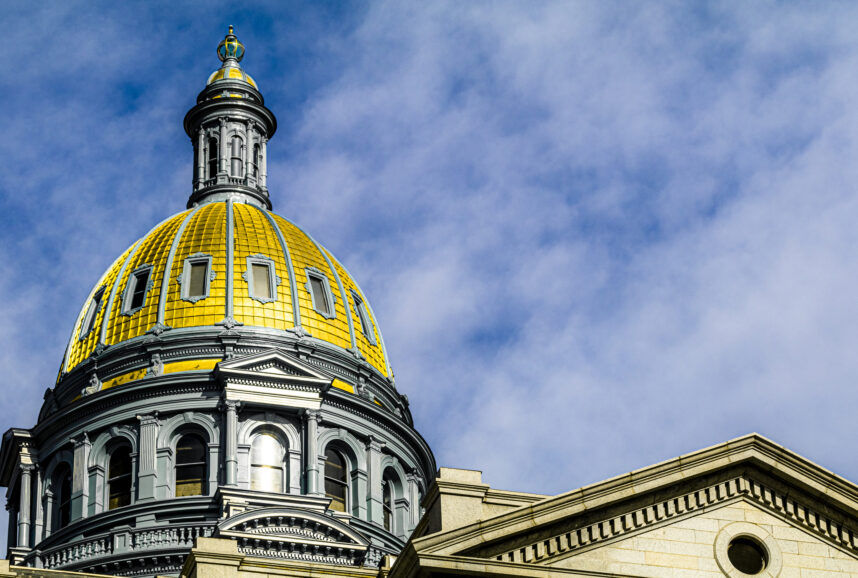Several
states have, or are considering, state-sponsored retirement savings plans for
private-sector employees who do not currently have access to such a plan
through their employer. Senate Bill 19-173 will add
Colorado to that growing list.
SB
19-173 will examine:
- What would it cost if Colorado does nothing to
help the 45 percent of private sector workers without retirement plans at work
save more for their future? - Can increasing financial education make a
serious impact on how much Coloradans save? - Would it make a significant difference to have
a marketplace that offers businesses lower-cost plans? - Can Colorado follow in other states’ footsteps
to create a universal, portable plan that will allow everyone to automatically
deduct part of each paycheck and deposit that into an IRA?
In
the coming months, State Treasurer (and PERA Trustee) Dave Young will oversee
analysis of these options, and come back to the Legislature in February 2020
with an implementation plan for the best way to fix our state’s retirement
crisis.
State-sponsored
retirement plans are one way states are trying to address the concern that
workers are ill-equipped for retirement. Those without adequate retirement
savings could become a costly burden to states and municipalities if they lack
any financial resources as they age out of the workforce.
The
AARP cites
research
showing that workers are 15 times more likely to save for retirement if they
have access to a payroll deduction savings plan at work. Yet a thorough
analysis of retirement savings readiness from the National Institute on Retirement Security found that many U.S.
workers don’t have access to a workplace retirement plan. In 2013,
nearly half (45.5 percent) of private-sector workers did not have access to a
retirement plan at work. Retirement access in Colorado looks similar to the
rest of the country: about 45
percent of workers do not have access to retirement savings plans through work,
according to an analysis of U.S. census data from The Bell
Policy Center.
Previous
studies have found
that younger workers, members of minority groups, and those with
low-to-moderate incomes, in particular, have especially low rates of access to
workplace savings plans. Access to retirement plans is particularly prominent
among those working for small businesses.
The Center
for Retirement Research at Boston College cites administrative costs and
concerns, along with uncertain business revenue, high employee turnover, and a
preference for cash wages as different reasons that small businesses, in
particular, do not offer retirement plans.
Several
states have taken the lead and established these retirement savings programs
(see below). Most of these plans include key features that are designed to
encourage retirement savings, such as automatically enrolling employees, using payroll
deduction, and automatically increasing contribution amounts over several
years. Typically, the plans establish IRAs for workers and cover administrative
costs through fees charged to workers’ investment accounts. Generally, the laws
require that all employers, at least with a minimum number of employees, must
participate unless they offer an alternative retirement plan. The plan designs
allow for portability where workers can rollover their savings if they go to
work for an employer that offers a retirement plan or if they move to another
state. The laws establishing these new plans have also included the creation of
oversight authorities that will administer the programs.
The
following information provides a summary of key features of several states’ retirement
savings plans for private sector workers.
State-Sponsored
Savings Plans
California
CalSavers,
California’s plan for private-sector retirement savings, is in a pilot stage
and will begin registering employers with five or more employees beginning on
July 1, 2019. By June 29, 2020, all employers with 100 or more workers that do
not offer another retirement savings plan are required to register. Over time, smaller employers will
be required to register, with those with five
or more employees required to register by
June 30, 2022.
Connecticut
The
Connecticut
Retirement Security Authority was created in 2016 through an act of the
Connecticut General Assembly. Though the law allowed the program to begin
effective January 1, 2018, the program launch has been
deferred
to an unspecified future date. The authority will
implement a program that will require participation of employers with five or more
Connecticut employees that do not already offer a retirement plan.
Illinois
Illinois
Secure Choice launched in early 2018. By November 2018, all Illinois employers
with 500 or more workers that have been in business for more than two years and
do not offer another retirement plan were required to register. All employers
with 25 or more employees
are required to register by November 2019.
Maryland
Maryland
$aves,
designed by a legislative commission and signed into law in 2016, is the
retirement savings plan required of Maryland businesses that do not offer their
own workplace retirement savings. The program is expected to start operations
in late 2019.
New Jersey
The
New Jersey
Secure Choice savings program was signed into law on March 28, 2019. It is
designed to help workers whose employers don’t provide their own retirement
savings plans through automatic payroll deductions. Workers at employers with
25 or more employees will be automatically enrolled in the program.
Oregon
Oregon was the
first state to implement a state-sponsored retirement plan in 2017. By December
15, 2018, all employers with 20 or more workers were required to register with
the plan or certify that they are exempt (already offering an employer-sponsored
retirement plan, such as a 401(k)-type plan). Over time, smaller employers will be required
to register, with those with four or fewer employees required to register by
May 15, 2020.
Washington
Washington’s Small
Business Retirement Marketplace, operated by the Washington Department of
Commerce, is a central online platform where pre-screened financial services
firms offer low-cost retirement savings plans to businesses and individuals.
The Marketplace is an effort
to simplify the process of finding a retirement savings plan and making it easy
to compare plans that have been approved by the state.
New York
New
York approved Secure Choice legislation
in 2018 to begin creating a program in 2019.
For
more information:
Several other
states
are also considering legislation.
MarketWatch: State-sponsored
retirement plans will help more people prepare for old age — why do they have
so many critics?
PortabilityThe ability to take an existing retirement plan with you when you change employers.





It is essential that retirement education be offered along with any plan offered. Too many wait too long to plan and base whatever’ they do on inaccurate or incomplete information. Basic financial education musty start in elementary school if we are to develop informed consumers of what is proposed in the future.
What a crock, promises, promises, promises… and then they later pull out the rug from underneath you, as has happened to our (koff-koff) “guaranteed” annual cost of living PERA pension increases. I had a contract for a 3.5% annual COLA, it’s been slowly ratcheted down to 2%, and in some years… exactly NOTHING. As a private citizen I’d likely be convicted of fraud and deservedly jailed if I did the same to others. There’s no good faith here, I don’t believe these people as far as I can throw them, AVOID!
I agree with Christopher J Richards comment totally, PERA lied to its members!
This seems like a good idea, but there may be unexpected drawbacks. Looking at the results in states that are already farther down the road than Colorado would be a good early step in designing a system that is both effective and avoids pitfalls.
Having a retirement plan is great and necessary’, but NOT if the government creates “oversight” authorities that have ANY control of the money. Look what they did to our Social Security funds. This was the previous government mandated retirement fund! Educate the people about retirement and our obligation to take care of ourselves, and DON’T let the government have control of the retirement funds